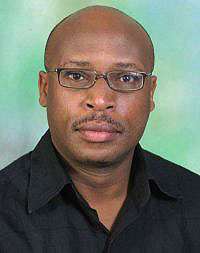In the span of just over a week of coincidences, the Al-Shabaab and its containment in the region was much in the news. First, the incident that provoked Kenyan Defence Forces resolve to pursue the militants in Somalia under Operation Linda Inchi made a significant step towards closure.


In the span of just over a week of coincidences, the Al-Shabaab and its containment in the region was much in the news.
First, the incident that provoked Kenyan Defence Forces resolve to pursue the militants in Somalia under Operation Linda Inchi made a significant step towards closure.
This was with the death sentence passed last week on the man accused of being part of the planning and executing the kidnapping of the British tourist, Judith Tebbutt, in Lamu at the Coast and the murder of her husband.
That same week, by happenstance, Judith Tebbutt was on BBC talking about her book, A Long Walk Home, which describes her six months ordeal in the hands of her Al-Shabaab kidnappers.
And just this week, the African Union Mission in Somalia (AMISOM) Troops Contributing Countries (TCC) summit was held in Kampala, under the theme "Towards a Harmonised Approach by the Stakeholders in Building a Peaceful Somalia”.
Amisom is the regional peacekeeping mission operated by the African Union with the approval of the UN, and mandated to conduct peace support operations in Somalia.
It will be recalled that after scoring a series of successes in routing the Al-Shabaab from their strongholds, the Kenyan Defence Forces in Somalia were invited to join and eventually re-hatted under the Amisom Command in December 2011.
Now we can speak of a Somalia on its tottering steps towards a semblance of stability that must not only be guarded, but nurtured to grow at all costs.
There is no gainsaying everyone has a stake in the stability of Somalia, thus the regional and global interest to which some quarters are "half-half” of the suggested come back of "UN interventionism” in Somalia.
The recent formation of the UN Assistance Mission in Somalia (Unsom) and the extension of the mandate of the eight-member Monitoring Group on Eritrea and Somalia have been cited.
Certainly, the UN has not acquainted itself very well in the region. The messy, conflict-ridden situation in eastern DRC is a case in point, despite the record peacekeeping troops exceeding 20,000 under the United Nations Organisation Stabilisation Mission in the Democratic Republic of the Congo (MONUSCO).
In their communiqué in Kampala, the Heads of State were emphatic about the need for continued African leadership in the efforts to stabilise Somalia and reduce the threat of Al Shabaab, underlining the fight against the militants as the major focus of TCC.
A concern was expressed that the folding Amisom into the UN Mission in Somalia would cause inequitable distribution of resources and render operations of the mission ineffective.
Rwanda is notable for its contribution of peacekeepers in Africa and elsewhere in the world, though not in Somalia. The principle behind peacekeeping is as regional as it is global.
Thus Rwanda was adequately represented in Kampala. Kenya’s interest is tied to the East African Community’s not only on tourism, to which the EAC is seeking a single visa, but to its security with its regional and global ramifications.
Judith Tebbutt and the condemned Kenyan culprit of the Al-Shabaab kidnapping and murder are the reminder of the local and global ramifications.
The culprit has said he will appeal the death sentence, but it is to Tebbutt’s determination, not to allow the militants, or what is left of it, to "have that power over” our minds with their threats of terror, that we must rally.
The TCC Heads of State resolve at the Kampala Summit must be lauded.
The strength of Amisom uniformed personnel currently stands at just over 17,700 and includes both troops and police.
Twitter: @gituram


